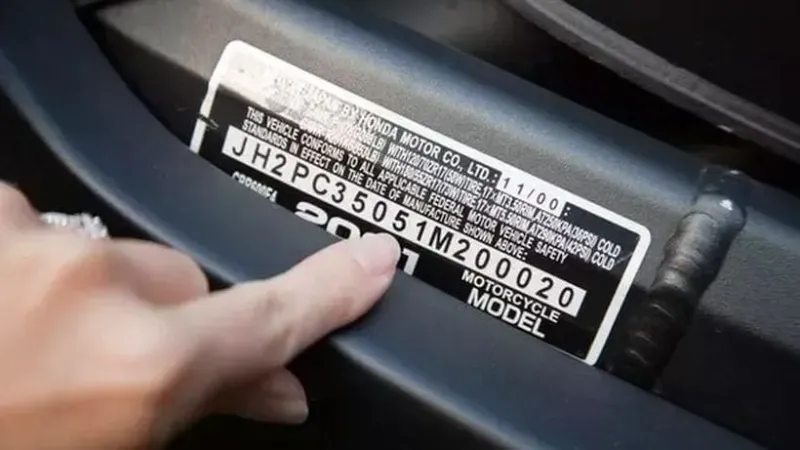
Purchasing a car, especially a used one, can be a wise investment, but the process is daunting. Acquiring that vehicle goes beyond just paying for and riding it home. If you aren’t careful, you could run into many problems with the car. Before you make a purchase, it’s essential to do due diligence to avoid any potential issues. This includes checking if the car has been involved in an accident or stolen. One useful tool to help you in this process is a VIN check.
A VIN check can provide you with valuable information about the car’s past, including repairs, maintenance records, mileage, and ownership history. However, many people make costly mistakes when using this checker tool. In this post, we shall discuss the most common mistakes people make when using their VIN check to buy a car and how to avoid them.
- Relying on a VIN Check with Limited Information
Believe it or not, not all available free online VIN check is good enough. Some only provide limited information, which may not be tangible to the buyer. Paid VIN checks are still better, but some free VIN checks can produce more in-depth information and comprehensive report on a car’s history than others. We recommend you don’t use only one free VIN check but multiple services if the free VIN Check isn’t up to scratch.
- Not Researching
Before you use your free VIN checker tool, you should do your research. As mentioned, some VIN checks may provide you with little information on the vehicle you want to purchase. It’s up to you to do due diligence and know the type of vehicle you are buying. Is it durable? Or does it have ignition problems? One way to know how good or durable your vehicle is is by checking consumer reports.
- Not Verifying the VIN Number
Another common mistake people make when using a VIN check is not ensuring the number they want to input matches the one on the car they want to purchase. In fact, many people don’t know the VIN of the vehicle they are looking to buy. The VIN is located on the car’s dashboard, inside the door, the engine firewall, and under the hood. You can also find the VIN in the vehicle’s documents. The VIN on the dashboard should match the one in the documents. If you notice any discrepancy, it’s a red flag that the vehicle has been tampered with.
- Ignoring the Warning Signs
A VIN check can reveal red flags, such as accidents. Ignoring this red flag can lead to costly repairs, which you could have potentially avoided if you had taken heed of the report. Pay attention to any red flags pinpointed by the assessment and question the seller before purchasing.
- Not Understanding the Report
A VIN report can be complicated and full of technical jargon that an average person or a novice may not fully comprehend. It’s essential to read and understand what the report says carefully. If you can’t, let someone help you interpret the result.
- Not Using the Right VIN Checker Website
Checking isn’t the only obligation you have as a prospective car buyer. You also have to ensure you’re checking the VIN on a reputable and encrypted site. Using a site with an expired security certificate, for example, is a red flag. Such sites could have outdated information on your car of choice. Hence, it is advisable to use recommended VIN checkers like ours.
- Not Doing a Test Drive
Who says you only have to use a VIN check to know the state of your vehicle? Doing a test drive is as paramount as using a VIN check. So before you do a VIN check, do a test drive first. It will tell you how the car feels and if there are any issues with it. If the automobile doesn’t seem alright, you should look elsewhere. Don’t feel compelled to buy the car. If the salesperson is persuasive, that’s a red flag.
Before you conclude the deal, do a test drive. Test the car’s limits by driving at different speeds. Observe the suspension, odometer, and transmission power. It will give you a hint on whether you should purchase the car or not.
- Skipping Mechanic Inspection
This is arguably the most common mistake people make when buying a car. Many people trust the VIN check so much that they ignore contacting a mechanic for a thorough inspection. Once they decide to buy a car, they check it through a VIN checker tool and then take it for a test drive. Most people view having their car checked by a mechanic as an extra expense.
Even if a VIN check report comes clean, it is crucial to have a professional mechanic inspect the car. They can identify any potential issue in the structure and mechanics of the vehicle that may not be visible in a VIN check. In all, have a mechanic on standby to check your car, regardless of the VIN check report.
Final Thoughts
Conclusively, a VIN check is vital for buying a car. It provides sufficient information regarding the make and model of the vehicle. However, you should learn to use it the right way. Avoid these common mistakes mentioned here, and you will purchase a car with no hidden problems. Don’t forget to use our free VIN checker tool to help you make a better buying decision.
When buying a car, it’s best to be well-prepared beforehand. With this post, you can avoid making mistakes other buyers made in the past. Don’t forget to take advantage of a free online VIN check to know more about your desired vehicle, including the year of production and model. With this post, buyers are rest assured that they will have all the information they need when purchasing an automobile, whether pre-owned or brand new in America!
